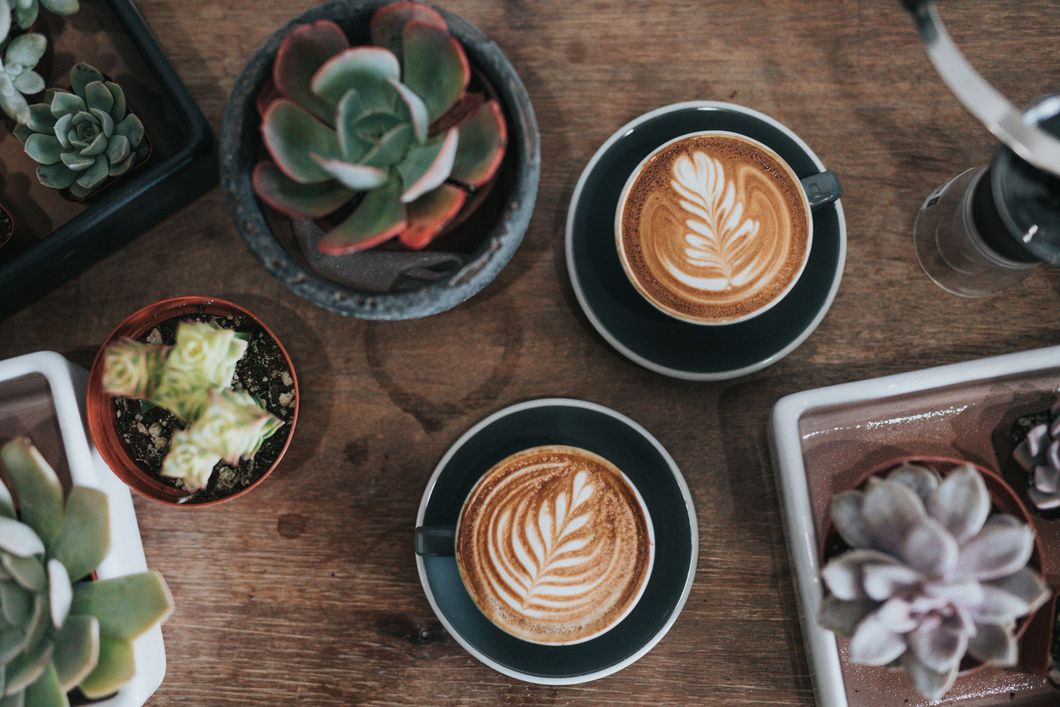Picture this: it's late at night, you have a huge test tomorrow, you need to study for as long as physically possible, what do you do? Do you study until you cannot keep your eyes open or do you reach for some coffee or tea, or perhaps an energy drink? If you're like me, you pound a cup of joe and keep grinding throughout the night, even if the sleep deprivation will hurt you.
In my last semester of college, I was probably addicted to caffeine. I would start off the day with a coffee, have another after my first class if it was a long night, and have another after class before I did my homework. It was especially bad if I had a test the next day, where I would drink as much as 300 mg of caffeine in order to stay up late enough to get a good study session in. According to Mayo Clinic, 400 mg of caffeine a day is the upper limit of safe caffeine consumption for most adults. I realized I was living an unhealthy lifestyle with that amount of caffeine intake, and tried to change during the school year, but I was always so tired and irritable without caffeine. After drinking copious amounts of monster energy zero during finals, I went back home to sunny Plano, TX and decided to make a change.
The first thing that I noticed about not drinking caffeine was that I slept a ton. And I mean a TON. I could barely go through the day without a nap, even if I got as much as 11 hours of sleep. My body was not used to staying up for an entire day without the chemical help of caffeine. Along with having to sleep all the time, I was always irritable and tired no matter how much sleep I got. It felt like I could never sleep enough to feel well rested. Because I didn't have caffeine to help me wake up, I always felt like I just woke up.
As a biology major, I had read a lot about chemical dependency but always thought that the written descriptions were exaggerations, and couldn't possibly be true. I have never been more wrong. The hardest part wasn't being tired all the time or being grouchy, instead of that it was having the willpower not to drink soda, coffee, tea, or anything with caffeine. Even after a month without it at this point, I still feel the draw of a cup of coffee. And to clarify, decaf is fine, but I miss the buzz after a piping hot coffee or espresso. Reading what addiction as an addiction is like on paper is one thing, but experiencing it is an entirely different story. I can hardly imagine how much harder it is to quit drugs more addictive than caffeine, but from my personal experience, I can guess that it's one of the hardest things to do in life.
Now that I'm a month into living without caffeine, I have learned so much about caffeine and addiction, and most importantly I remember what it's like not having caffeine all day, every day. When I wake up now after a good night's rest, I feel well rested, and after a bit, I feel like I did after a cup of coffee: awake, attentive, and alert. If I get that full night of sleep, I am also less tired throughout the day and don't need to take a nap to catch up on sleep. And the thing I worried about most was much easier than I thought. The thing that got me hooked on caffeine was staying up late at night doing school work. Because I'm currently in summer school, I have been unfortunate enough to stay up late into the night because of procrastination, and I was afraid that without caffeine I wouldn't be able to stay awake. But instead of that, it was much easier to stay up by sheer willpower.
After this experiment, I learned that it is possible to live life without caffeine, a thing which I thought was impossible while I was pounding back coffees left and right. I don't know yet whether or not this change will be permanent, but I can say for certain that I will (hopefully) never have my caffeine intake be that high again.

















